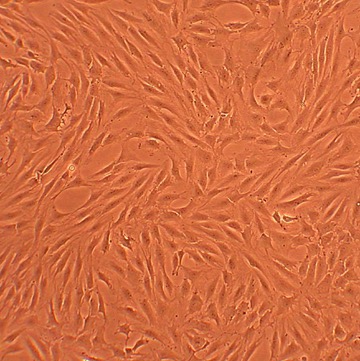Human Chondrocytes: Rheumatoid Arthritis: HC-RA
Description
Human Chondrocytes Rheumatoid Arthritis (HC-RA) are derived from human articular cartilage of donors with rheumatoid arthritis (RA). Rheumatoid arthritis is an inflammatory disease that is characterized by overproliferation of synovial cells and their infiltration into adjacent joint tissues, accompanied by gradual destruction of cartilage and bone erosion. Normally, chondrocytes are responsible for producing and maintaining the extracellular matrix of cartilage, but in RA cartilage, the environment is changed significantly due to inflammation and the invasion of other cells. Therefore, HC-RA can be a useful model to study the effects of those changes on chondrocyte biology. In parallel with normal HC, HC-RA can be used to investigate the differences between normal and pathological joints and evaluate potential treatment strategies.
Characterization: Positive for aggrecan after differentiation
Details
| Tissue | Human articular cartilage, from donor w/ rheumatoid arthrits | |
|---|---|---|
| QC | No bacteria, yeast, fungi, mycoplasma, virus | |
| Bioassay | Attach, spread, proliferate in Growth Med | |
| Cryovial | 500,000 HC-RA (1st passage) frozen in Basal Medium w/10% FBS, 10% DMSO | |
| Kit | Cryovial frozen HC-RA (402RA-05), Growth Medium (411-500), Subcltr Rgnt Kit (090K) | |
| Proliferating | Shipped in Gr Med, 2nd psg (flasks or plates) | |
| Doublings | At least 10 | |
| Applications | Laboratory research use only (RUO). Not for human, clinical, diagnostic or veterinary use. |
Resources
FAQs
Need More Help?
Visit our comprehensive FAQ page for detailed answers to common questions.
Need More Help?
Visit our comprehensive FAQ page for detailed answers to common questions.
Primary Cell FAQs